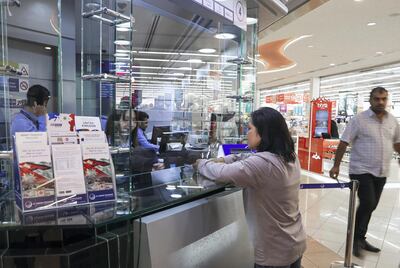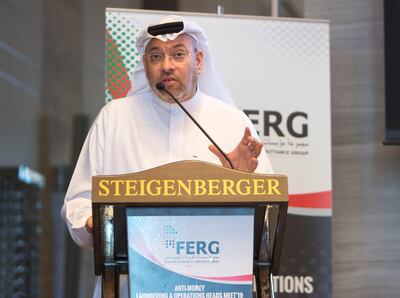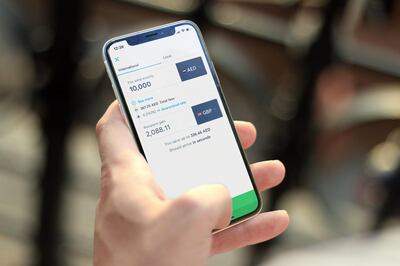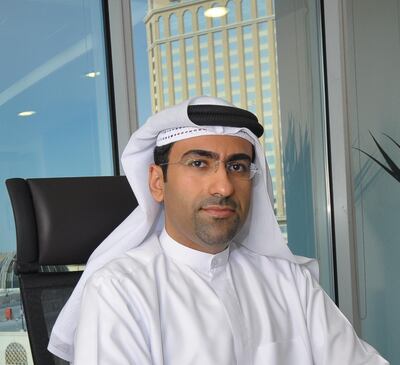During the Covid-19 crisis in the UAE, certain needs such as buying groceries and medicine are considered essential.
But what about sending money home? With its majority expatriate population, the UAE is one of the highest outward remittance countries in the world. Many migrant workers have families in their home countries who depend on them for financial support.
Exchange houses and banks are still allowed to open, but some are closed or only operating reduced hours. Money transfer companies in the Emirates have seen a sharp rise in the use of digital channels as residents are told to stay home to prevent the spread of the virus. Yet, that is not an option for the “unbanked”, who don’t have a bank account, credit card or debit card.
As well as the restrictions, convenience, cost and speed are other factors to consider. Here we guide you through the options to remit money from the UAE, as the worldwide coronavirus outbreak and precautionary measures continue.

Exchange houses are considered a support service
The vast majority of personal remittances are sent through exchange houses. Of the Dh165.2 billion sent from the Emirates last year, Dh131.2bn was remitted through exchange houses and Dh34bn through banks, according to the Central Bank’s 2019 annual report.
The Covid-19 crisis has changed the world as we know it, with more than 2.4 million confirmed cases across the globe and over 165,000 deaths as of Monday, according to Johns Hopkins University.
Most countries around the world, including the UAE, continue to enforce physical distancing and movement restrictions, including business closures, travel bans and stay-home directives.
In Dubai, residents can apply for a movement permit every three days to buy essentials or an emergency, and every five days for ATM cash withdrawal. A DXB move permit call centre representative (800-737648) said applicants should choose “emergency” if they need to send money home and explain the reason under the description.
Rashed Al Ansari, chief executive of Al Ansari Exchange, says exchange houses have been designated by the Supreme Committee of Crisis and Disaster Management as a “support service” because “we play an instrumental role in paying wages to a large segment of the workforce here in the UAE through the Wage Protection System (WPS) and also provide remittance services for them”.
The mandatory Wage Protection System, developed by the central bank, requires every private sector employer to choose a registered agent, such as banks, exchange houses and financial institutions, to record wage payments, ensuring they are paid on time at the agreed rate.
Some exchange houses are closed, while others operate shorter hours
Shopping malls and non-essential businesses have closed in the Emirates, following government directives. At first, it was understood that mall branches of banks and exchange houses would be included in the closures. However, Osama Al Rahma, chief executive of Al Fardan Exchange, says the decision depends on a mall's management, business flow and specific government restrictions.
In Abu Dhabi, for example, Al Fardan branches in Al Wahda Mall and Marina Mall have closed, Mr Al Rahma says, while other locations are shut due to the nationwide disinfection drive, such as the Gold Souk branch in Dubai.

Al Ansari, which has more than 190 branches across the UAE, has only closed a few branches. These include Dubai Outlet Mall, Dubai Mall and Dragon Mart as well as Souq Murshid and Naif in Deira. In Abu Dhabi, Marina Mall and Yas Mall branches are closed, while in Sharjah, Sahara Centre is closed.
Orient Exchange has closed a handful of locations out of its 25 branches in the UAE, says its chief executive Rajiv Raipancholia.
Banks have closed a higher proportion of branches, as most transactions can be carried out online or through ATMs. Emirates NBD, for example, is only operating 17 “strategically located branches nationwide with limited services” from April 11, according to its website. First Abu Dhabi Bank, meanwhile, has temporarily closed 50 of its branches and kept 25 open.
In Dubai, exchange houses are only allowed to operate between the hours of 8am and 2pm. In the rest of the UAE, they are allowed to operate for longer. It is advisable to call ahead to check the latest updates, as the situation is fluid.
Banks also have reduced branch timings, most choosing to operate from 8am or 9am until 12pm or 1pm.
There are plenty of online alternatives
In recent years, exchange houses and banks have ramped up their digital offerings amid rising competition to make transfers more convenient, cheaper and faster. This helps those who do not want to leave the house during Covid-19 to make transfers.
Last week, global low-cost digital money transfer service TransferWise started operating in the UAE, six months after receiving its licence from Abu Dhabi Global Market's Financial Services Regulatory Authority. The platform lets users send money online at the mid-market exchange rate – the midpoint between demand and supply for a currency – and charges an upfront, transparent fee.
TransferWise says a quarter of its transactions globally are completed in less than 20 seconds. The service has the added benefit that it is fully online without the need to verify identity in person.

Banks also offer customers digital transfer options, such as Mashreq Bank’s Quick Remit and Emirates NBD’s DirectRemit.
Last month, FAB partnered with MasterCard to offer the payit mobile wallet, which delivers instant remittances to select bank accounts and wallets internationally. There are no fees, while exchange rates are “well benchmarked to the market”, a FAB spokesperson said.
“Bringing this technology to the market as early as possible is crucial now more than ever,” said Hana Al Rostamani, group head of personal banking at FAB.
ToTok, an instant messaging app used by more than 20 million people worldwide, launched ToTok Pay for android smartphone owners in the UAE on March 23, with users able to send money to friends and family through ToTok chat.
ToTok co-founder Giacomo Ziani hopes the company's contactless and cashless payment method will "play a small part in helping protect public health" in the UAE at this time.
Western Union, which rolled out its digital money transfer services in the UAE last year, allows customers to make online transfers using debit, credit and pre-paid cards, as well as bank accounts, in its global network of 100 countries.

Many exchange houses say their money transfer apps have seen a huge sharp rise in demand amid the outbreak. Lulu Money is clocking over 5,000 downloads daily with overall transactions rising 35 per cent relative to January. The company has also handled 6,000 chats per week, a spike of 450 per cent from its earlier average of 5,000 per month.
“The adoption rate to digital has accelerated in recent weeks, as people slowly realise the medium’s inherent advantages,” says Adeeb Ahamed, managing director of Lulu International Exchange. “We have noticed customers switch over to our secure mobile app, Lulu Money, at an exponential rate.”
While 90 per cent of Lulu Money's transactions are processed in under 15 seconds, the rest take less than a minute, he says. However, the app can only be used by existing customers who have completed the KYC (Know Your Customer) process in physical branches. New customers must visit branches to verify their identity.

Al Ansari recorded over 110,000 online transactions in March, an increase of more than 40 per cent. However, transactions made through the mobile app only represent 7 per cent of Al Ansari’s total remittances.
“Despite the surge in mobile app remittance, a large segment of the population still prefers visiting brick-and-mortar branches,” says Mr Al Ansari.
Again, new customers have to initially visit the branch to verify their identity and, more importantly, digital options are not available to the “unbanked” population.
Mr Al Ansari says the exchange house is in the final stages of developing a feature in its mobile app that enables customers to remit money from their WPS card directly without visiting a branch and without the need for a “full-fledged bank account”.
FinTech start-ups, such as Now Money, Rise and Denarii Cash, offer low-cost options to those who don't have a bank account or access to other money transfer methods.
Comparing the cost will become key
Several variables affect the cost of money transfers, such as the method used, destination and amount to be remitted.
“It’s also important for customers to recognise that although the headline exchange rate can seem attractive, when fees are added the overall cost can increase significantly and this should be taken into consideration when comparing costs,” says Graham Flannery, chief executive of Wall Street Exchange.
The World Bank publishes cost comparisons on its website, covering 12 corridors from the UAE, including top receivers India, Pakistan and the Philippines. It also includes the speed of the transfer, which can vary from less than a minute to a couple of days.
With the coronavirus crisis, people have become more savvy when it comes to exploring their options.
“Before Covid-19 and after Covid-19, I think we will find a major change in consumer behaviours,” says Mr Al Rahma, who is also vice chairman of the Foreign Exchange and Remittance Group (FERG), representing more than 70 exchange houses in the UAE. “People used to be hesitant to use apps … this will totally change the mindset.”









